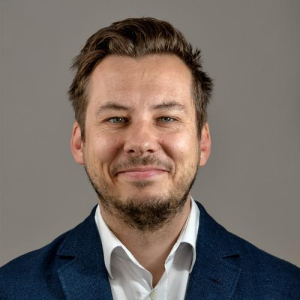
finished
Understanding the Cognitive Representation of the “Big Two”

principal investigator / project leader
project value: PLN 623,227
funding source: National Science Center
discipline: psychology
location: Sopot
duration: 2018 2019 2020 2021
Communion is the need to establish and maintain positive relationships with people. Agency is the need to achieve goals and to emphasize one’s own values. These concepts are commonly found in different cultures, their universal presence has given them the title of the “Big Two”. The research conducted by cooperating teams from SWPS University and the University of Koblenz-Landau will contribute to the understanding of the dimension of the “Big Two”.
RESEARCH PROJECT
Understanding the Cognitive Representation of the “Big Two”
Dimensions of Social Cognition
Research Unit

Grant AmountPLN 623,227
Funding Source

Duration of Research Project: January 2018 – January 2021
Communion is the need to establish and maintain positive relationships with people. Agency is the need to achieve goals and to emphasize one’s own values. These concepts are commonly found in different cultures, their universal presence has given them the title of the “Big Two”. The research conducted by cooperating teams from SWPS University and the Friedrich-Alexander University of Erlangen-Nuremberg will contribute to the understanding of the dimension of the “Big Two”.
Project Outline
The overarching goal of the proposed line of studies is to further the understanding of agency and communion (the “Big Two”) two fundamental dimensions that structure perception and judgment of the self, other people, and social groups. Communion reflects the need for connection and positive relations with others while agency reflects the need to achieve goals and to emphasize one’s own values. Despite an extensive literature on these “Big Two” dimensions, little attention has been devoted to the structure of their cognitive representation. This project aim to fill this theoretical gap.
The researchers presumed that communion is represented as a more homogenous and conceptually denser construct than agency, thus communion is represented in a more categorical/bipolar fashion than agency. As a result, lay people have different implicit personality theories for agency and communion. That is, lay people tend to judge communion in an either-or fashion (somebody is either a good or a bad person) whereas agency has more intermediate steps. The analysis of the implicit personality theories associated with dimensions of agency and communion will be an important part of the proposed project.
One of the central issues of (social) psychology is how people make judgments about themselves and others. Research in the field of social cognition refers to the process underlying this phenomenon or the content used. The latter area has been the subject of many studies, the result of which showed that there are two basic dimensions that influence the way people perceive themselves, others and social groups, namely communion and agency. Intercultural research proves the ubiquity of these two content dimensions across languages, their universal presence in psychology has given them the title of the “Big Two”. Previous research on agency and communion paid little attention to the structure of cognitive representation of these dimensions which could have a number of important consequences for the theory and research practice. With this project we aim to fill this gap.

Wojciszke, Bogdan
Principal Investigator
Specialization
social psychologist
First and last name
Bogdan Wojciszke
Academic degree or title
Professor
Email
This email address is being protected from spambots. You need JavaScript enabled to view it.
Institute
Institute of Psychology
Role in the Faculty
{"funkcja-na-wydziale0":{"Funkcja":"","\u0141\u0105cznik":"","Nazwa w mianowniku":"Faculty of Psychology in Sopot"}}
Role in the Department
{"funkcja-w-katedrze0":{"Funkcja":"","\u0141\u0105cznik":"","Nazwa w mianowniku":"Department of Social Psychology"}}
Role in the Institute
{"funkcja-w-instytucie0":{"Funkcja":"","\u0141\u0105cznik":"","Nazwa w mianowniku":"Institute of Psychology"}}
Role in the Research Center
[]
Professor Bogdan Wojciszkesocial psychologist
Research Methods
To accommodate the extensive previous literature on agency and communion, we combine a range of different methods and data sources. To test these hypotheses, we combine re-analyses of previous data (a meta-analysis of reliability coefficients and structural equation modeling of large-scale survey data) with controlled experiments employing innovative methods, such as spatial arrangement. Conducting parallel studies in Poland and Germany will allow us to gauge the generalizability of findings across languages. In conclusion, this project will enhance understanding of the “Big Two” dimensions, it will explain some seemingly contradictory previous findings in the “Big Two” research, and will continue and expand a fruitful collaboration between Polish and German researchers.
Application of Results
This research question is important not only because agency and communion, and related constructs are fundamental dimensions, but also because those differences can have far reaching consequences for theory (e.g., by providing an explanation for some inconsistencies in the previous literature), as well as for research practice, for measurement approaches and for analytical strategies in particular. Moreover, agency and communion as fundamental dimensions of social cognition are heavily based on language. Testing our hypotheses in a German and Polish setting will allow us to assess the generalizability of our finding across two languages from relatively remote language families, West Slavic (Polish) and West Germanic (German), respectively.
Value of Polish-German Cooperation
The researchers from SWPS University in Sopot (Bogdan Wojciszke and Michał Parzuchowski) and the University of Koblenz-Landau (Susanne Bruckmüller) will coordinate their research efforts and collaborate on all parts of the working program, this will result in a joint publication of the results. Complementary areas of expertise within the research team create a group that is excellently suited to investigate the structural representation of the “Big Two”. All involved researchers are experts in these fundamental dimensions and have previously published on the topic. They bring different theoretical and methodological foci and experiences to the research team. This project will not only build on previous collaboration, but will also lay the foundation for future collaborative endeavors by closely integrating a postdoctoral researcher and two Ph.D. students (one in Poland and one in Germany). A high level of integration will be achieved via annual meetings of the whole team, as well as by research stays of the Ph.D. students and the postdoctoral researcher in the partner country.
Research Team

Parzuchowski, Michał
Specialization
psychologist
First and last name
Michał Parzuchowski
Academic degree or title
Ph.D. / Associate Professor
Email
This email address is being protected from spambots. You need JavaScript enabled to view it.
Position
profesor uczelni
Role in the Faculty
{"funkcja-na-wydziale0":{"Funkcja":"","\u0141\u0105cznik":"","Nazwa w mianowniku":"Faculty of Psychology in Sopot"}}
Role in the Department
{"funkcja-w-katedrze0":{"Funkcja":"","\u0141\u0105cznik":"","Nazwa w mianowniku":"Department of Social Psychology"}}
Role in the Institute
{"funkcja-w-instytucie0":{"Funkcja":"","\u0141\u0105cznik":"","Nazwa w mianowniku":"Institute of Psychology"}}
Role in the Research Center
{"funkcja-w-centrum0":{"Funkcja":"Head of the center","\u0141\u0105cznik":"","Nazwa w mianowniku":"Center of Research on Cognition and Behavior"}}
Ph.D. / Associate Professor Michał Parzuchowskipsychologist
